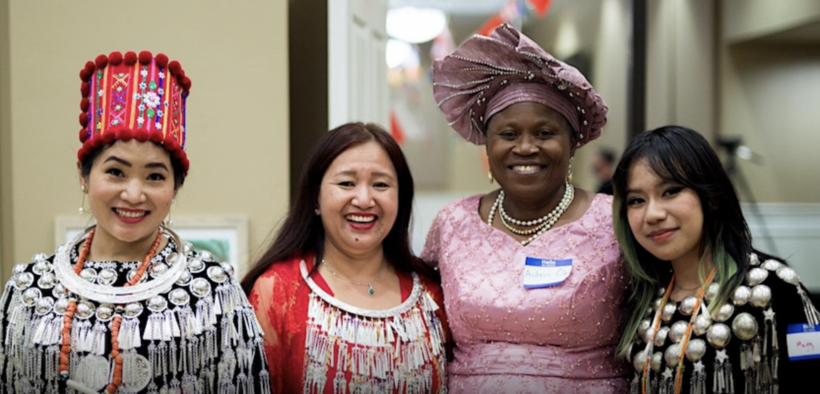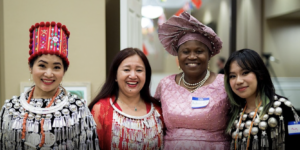Immigrant Churches in Diaspora Network May be Key to Church Growth in America
In Austin, 150 immigrant churches are growing and serving the immigrant community.

The aromas of potluck dishes originating from Africa, Asia, and South America filled the air as churchgoers dressed in an array of colors gathered in the Austin Vineyard church building for the Nations Worship Service in late July. Those in attendance hailed from over a dozen countries.

A worship band from Nigeria led music, and Scripture was read in nine languages. Flags from multiple nations were posted throughout the sanctuary, and Christian clergy from around the world prayed.
The Nations Worship Service brought together Christians from the 150 diaspora congregations across Austin, Texas. The Anglican Church of North America’s Diocese for the Sake of Others (D4SO) began the Diaspora Network to “bring together immigrant and diaspora communities across North America for resourcing, fellowship and mission.”
“We believe that diaspora – the global church presence in Austin and in the United States – represents one of the greatest hopes for renewal of the North American church,” Jonathan Kindberg, the Diaspora Network’s mobilizer, told Texas Standard.
Church attendance in the United States has been declining for decades. According to a study by the nonpartisan Public Religion Research Institute, 57% of Americans say they seldom or never attend a religious service. That’s up from 45% in 2019.
Kindberg said church attendance is primarily declining in what he called “non-immigrant spaces.” However, part of the church attendance story is hidden. Many immigrant churches lack an official church building and don’t keep records, which can obscure their impact and reach, he noted.
“They’ll often exist on the margins, not necessarily owning church buildings or having full-time pastors,” Kindberg said.
Access to MinistryWatch content is free. However, we hope you will support our work with your prayers and financial gifts. To make a donation, click here.
Syracuse University sociologist Prema Kurien says immigrant groups are more religious than many Americans for other reasons.
“Immigration and relocation from a familiar context to something completely unfamiliar is a theologizing experience,” Kurien said. “It raises existential questions – things that people don’t think about when they are in their home country with a familiar community.”
International Restoration Church has grown as a result of its support of immigrants from Nepal and Bhutan. Its pastor, John Monger, started the church in a refugee camp when he was exiled from his home in Bhutan. He continued the ministry there for 20 years.
Because he now pastors an established congregation in Austin, Monger can provide support to immigrants of all religions in the city.
“We have a small center where we welcome refugees, immigrants and also local people,” he said. “If they are broken and confused in their life, without a job or house, we stand with them and then mentor them.”
While converting people to Christianity is not his primary goal at the immigrant center, Monger said many in his congregation come to faith after receiving his help.
“Without any conditions I really want to help them,” Monger said. “Helping is my great joy.”
Several of the clergy with immigrant backgrounds pointed to the same issues existing in the American church that may be contributing to its decline: the American church has great material wealth but is poor in matters of spirit and heart.
One pastor compared the American church to a mansion with a beautiful fireplace — with no fire burning.
Main photo: Photo via social media / Courtesy of Diaspora Network



